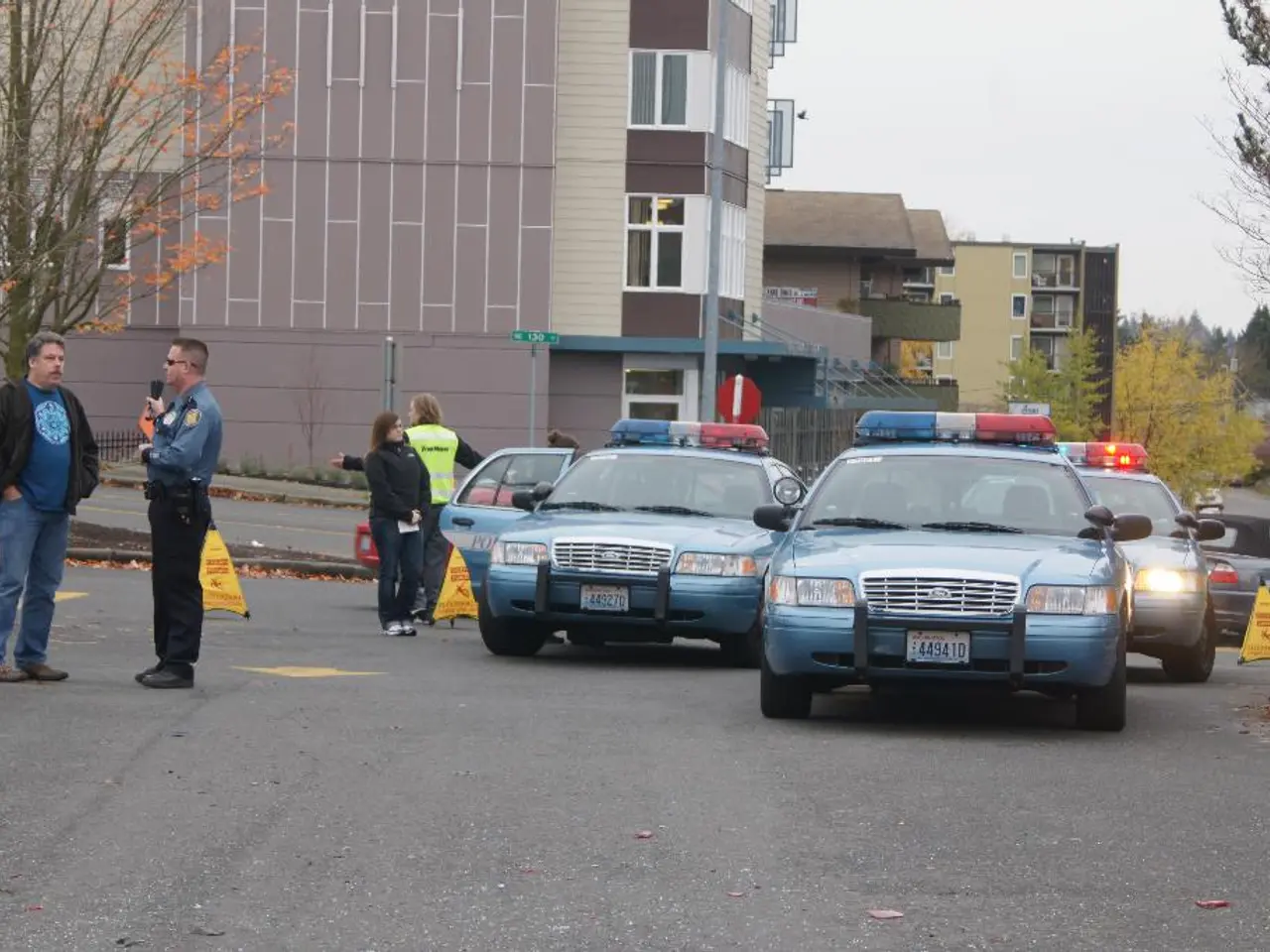"Look, I'm here" or "I've arrived, help needed"
In a significant leap forward for emergency response services, the Düsseldorf fire department's control center can now pinpoint the location of a large portion of emergency calls from mobile networks with remarkable precision, up to a few meters. This groundbreaking development is made possible by the Advanced Mobile Location (AML) service, a system that automatically activates when a user makes an emergency call from their smartphone, sending the caller's precise GPS coordinates to emergency services.
The AML service, mandated under the European Electronic Communications Code, is currently being implemented across Germany. This regulation requires all smartphones to support AML, ensuring faster and more accurate emergency responses. In about two-thirds of cases, the location can be determined within a maximum of 30 seconds.
AML leverages hybrid positioning technologies, including GPS, Wi-Fi, and sensor data from the smartphone, to pinpoint the caller's location more reliably than traditional methods. This means emergency services receive nearly instant and precise location information without requiring the caller to provide it verbally, enhancing efficiency and reducing errors during critical calls.
This development has the potential to save many lives, as has been demonstrated in other European countries with AML deployment. The improved location accuracy allows emergency responders to reach callers faster, thereby reducing response times.
However, it's important to note that older end devices and smartphones with other operating systems cannot currently be located by the system. Additionally, only emergency calls that come in at the Huettenstrasse can be located. All relevant data is deleted from the server within one hour after the emergency call to comply with data protection regulations.
The pilot phase of the nationwide project started in the fall of 2019, with the state capital now also participating. For the system to work, at least Android version 4 or iOS version 13.3 must be installed on the end device.
In summary, by complying with the EU regulation, Germany's use of AML ensures emergency calls trigger automatic location sharing, improving the speed and effectiveness of emergency responses significantly. This innovation is set to revolutionise emergency response services, potentially saving countless lives in the process.
- The Advanced Mobile Location (AML) service, a system mandated under the European Electronic Communications Code, incorporates science and technology by utilizing hybrid positioning technologies, such as GPS, Wi-Fi, and sensor data from smartphones, to provide emergency services with fast and accurate location data.
- As a result of implementing AML across Germany, the country's emergency response services will benefit greatly from the integration of science and technology, enhancing efficiency and potentially saving countless lives through faster and more accurate emergency responses.




